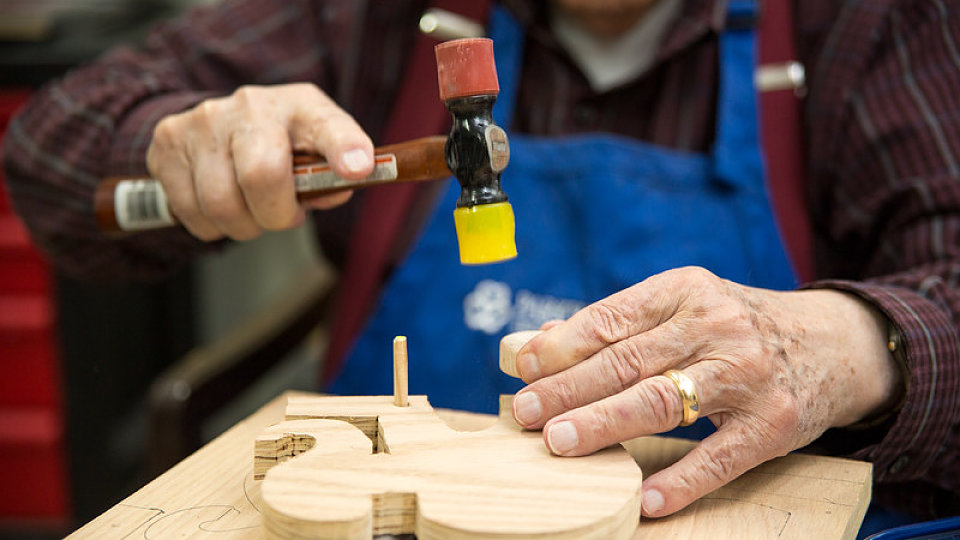Just keep working: creative hobbies maintain brain agility
Stitches carefully woven into a colorful quilt. Wooden slabs painstakingly carved into miniature cars. Yarn spun into dozens of tiny caps.
What if these weren’t just evidence of retirement, but rather evidence that a senior adult’s brain is actively delaying memory loss?
A new study from the Mayo Clinic suggests that while social engagement and physical activity significantly help reduce the risk of dementia and Alzheimer’s, creative hobbies like woodworking and knitting are the most effective in maintaining brain agility.
"There's enough data here to suggest that being socially, mentally active -- along with what we know from other research, physically active --probably does influence whether you're going to get dementia down the line. And you can reduce your risk by being mentally and physically active," said Dr. James Leverenz, a neurologist at the Cleveland Clinic's Lou Ruvo Center for Brain Health.
Buckner Senior Living communities proactively create opportunities for senior adults to pursue these artistic passions through life-enriching activities. However, many residents don’t stop there. They use their hobbies, and their time, to shine hope into others’ lives. Residents like the Calder Woods women who knit caps for newborns at local hospitals or the Parkway Place men who carved toys for Houston’s children in need are simultaneously fighting memory loss in their own lives and creating memories for others.
You can read more about how creative hobbies help senior adults retain memory function in a recent CBS News article here.




Add a Comment